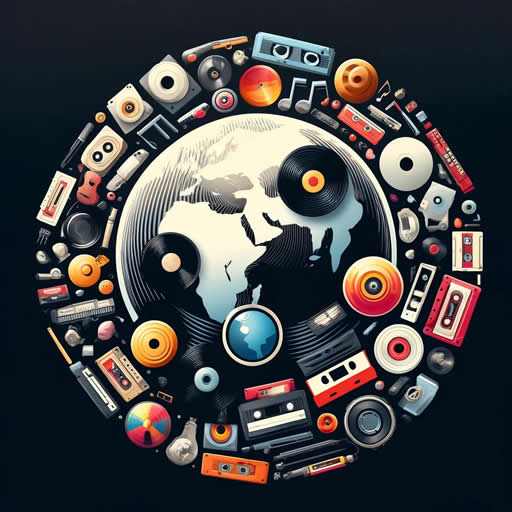The Rise of Outlaw Country in the 1970s
The Birth of Outlaw Country
In the 1960s and early 1970s, Nashville was the center of country music, churning out polished, mainstream hits. However, many musicians and fans began to feel confined by the formulaic “Nashville Sound,” which relied heavily on slick production, string sections, and sanitized lyrics. The genre had lost much of its grit and authenticity.
This dissatisfaction led to the rise of Outlaw Country, a movement defined by a desire to break free from Nashville’s control. Musicians like Willie Nelson and Waylon Jennings spearheaded this rebellion, choosing to take creative control of their music and embrace a more raw, authentic sound that blended country, rock, and blues.
The Early Days of Outlaw Country
The early 1970s saw a wave of artists rejecting the constraints of the Nashville establishment. Influenced by rock, folk, and blues, these musicians created a sound that was edgier and more experimental. One of the pivotal figures of this movement was Willie Nelson, who released the groundbreaking album “Shotgun Willie” in 1973. The album, featuring songs like “Whiskey River” and “Blue Skies,” combined country, honky-tonk, and rock influences. Nelson’s commitment to his artistic vision earned him the nickname “The Red-Headed Stranger.”
Waylon Jennings, another key player in the Outlaw movement, became known for his rebellious attitude and sharp songwriting. His album “Wanted! The Outlaws” (1976), which included hits like “Only Daddy That’ll Walk the Line,” became the first country album to be certified platinum. Jennings’ defiant approach and refusal to conform to Nashville’s expectations made him a trailblazer for future artists.
Johnny Cash: A Maverick in His Own Right
Johnny Cash, already a country legend, also found himself drawn to the Outlaw movement. Throughout his career, Cash had defied conventions, and in the later part of his career, he worked with producer Rick Rubin on the American Recordings series. Cash’s stripped-down, bluesy reinterpretations of classic songs revived his career and demonstrated the raw power and emotional depth of the Outlaw sound.
Kris Kristofferson: A Voice of the Outlaw Movement
Kris Kristofferson, known for his poignant, often autobiographical songwriting, also played a key role in shaping the Outlaw Country genre. Songs like “Sunday Mornin’ Comin’ Down” and “Help Me Make It Through the Night” captured the struggles of ordinary people, giving voice to a raw, unvarnished portrayal of life that resonated with fans and artists alike. Kristofferson’s honesty and refusal to adhere to the formulaic Nashville style made him a natural fit for the movement.
Outlaw Country’s Lasting Influence on Modern Country Music
The influence of Outlaw Country is still evident in modern country music, as many contemporary artists continue to push against the boundaries of traditional country sounds. The authenticity, grit, and emotional rawness that defined the Outlaw movement have inspired a new generation of musicians.
Chris Stapleton: A Soulful Revival
Chris Stapleton’s blues-infused, soulful sound is a direct descendent of the Outlaw movement. His emotionally charged lyrics and powerful vocals carry the same spirit of rebellion and authenticity that artists like Willie Nelson and Waylon Jennings embodied. With albums like “Traveller” and “Starting Over,” Stapleton has emerged as a leading figure in today’s country music scene.
Kacey Musgraves: A Genre-Bender
Kacey Musgraves is known for blending country with pop and electronic influences, much like the Outlaw artists who borrowed from other genres to break free from convention. Her bold, introspective lyrics and genre-defying sound have made her a standout in modern country music, drawing comparisons to the creative spirit of the Outlaw pioneers.
Margo Price: A Modern Outlaw
Margo Price, signed to Third Man Records, channels the spirit of classic Outlaw Country with her hard-hitting, emotionally raw songs. Her music often touches on themes of hardship, love, and redemption, echoing the timeless stories told by artists like Willie Nelson and Waylon Jennings. Price’s refusal to conform to mainstream country trends has made her one of the most exciting voices in the genre.
The Legacy of Outlaw Country
The rise of Outlaw Country in the 1970s marked a turning point in the history of country music. By rejecting the polished, formulaic Nashville sound, the Outlaw movement introduced a style that was more authentic, emotionally raw, and true to the artists’ own experiences. The pioneers of this movement—Willie Nelson, Waylon Jennings, Johnny Cash, and Kris Kristofferson—paved the way for future generations of musicians to explore their own unique sounds.
Today, artists like Chris Stapleton, Kacey Musgraves, and Margo Price continue to carry the torch of the Outlaw legacy, challenging the boundaries of modern country music. The influence of Outlaw Country remains alive, ensuring that the rebellious spirit of the 1970s will continue to shape the genre for years to come.
